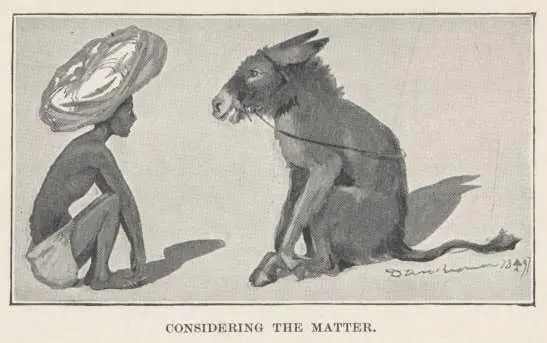Mark Twain - Following the Equator
Здесь есть возможность читать онлайн «Mark Twain - Following the Equator» весь текст электронной книги совершенно бесплатно (целиком полную версию без сокращений). В некоторых случаях можно слушать аудио, скачать через торрент в формате fb2 и присутствует краткое содержание. Год выпуска: 2004, Жанр: Классическая проза, Юмористическая проза, на английском языке. Описание произведения, (предисловие) а так же отзывы посетителей доступны на портале библиотеки ЛибКат.
- Название:Following the Equator
- Автор:
- Жанр:
- Год:2004
- ISBN:нет данных
- Рейтинг книги:3 / 5. Голосов: 1
-
Избранное:Добавить в избранное
- Отзывы:
-
Ваша оценка:
- 60
- 1
- 2
- 3
- 4
- 5
Following the Equator: краткое содержание, описание и аннотация
Предлагаем к чтению аннотацию, описание, краткое содержание или предисловие (зависит от того, что написал сам автор книги «Following the Equator»). Если вы не нашли необходимую информацию о книге — напишите в комментариях, мы постараемся отыскать её.
Following the Equator — читать онлайн бесплатно полную книгу (весь текст) целиком
Ниже представлен текст книги, разбитый по страницам. Система сохранения места последней прочитанной страницы, позволяет с удобством читать онлайн бесплатно книгу «Following the Equator», без необходимости каждый раз заново искать на чём Вы остановились. Поставьте закладку, и сможете в любой момент перейти на страницу, на которой закончили чтение.
Интервал:
Закладка:
I do not claim that the pilgrims do their acts of worship in the order and sequence above charted out in this Itinerary of mine, but I think logic suggests that they ought to do so. Instead of a helter-skelter worship, we then have a definite starting-place, and a march which carries the pilgrim steadily forward by reasoned and logical progression to a definite goal. Thus, his Ganges bath in the early morning gives him an appetite; he kisses the cow-tails, and that removes it. It is now business hours, and longings for material prosperity rise in his mind, and he goes and pours water over Shiva's symbol; this insures the prosperity, but also brings on a rain, which gives him a fever. Then he drinks the sewage at the Kedar Ghat to cure the fever; it cures the fever but gives him the smallpox. He wishes to know how it is going to turn out; he goes to the Dandpan Temple and looks down the well. A clouded sun shows him that death is near. Logically his best course for the present, since he cannot tell at what moment he may die, is to secure a happy hereafter; this he does, through the agency of the Great Fate. He is safe, now, for heaven; his next move will naturally be to keep out of it as long as he can. Therefore he goes to the Briddhkal Temple and secures Youth and long life by bathing in a puddle of leper-pus which would kill a microbe. Logically, Youth has re-equipped him for sin and with the disposition to commit it; he will naturally go to the fane which is consecrated to the Fulfillment of Desires, and make arrangements. Logically, he will now go to the Well of the Earring from time to time to unload and freshen up for further banned enjoyments. But first and last and all the time he is human, and therefore in his reflective intervals he will always be speculating in "futures." He will make the Great Pilgrimage around the city and so make his salvation absolutely sure; he will also have record made of it, so that it may remain absolutely sure and not be forgotten or repudiated in the confusion of the Final Settlement. Logically, also, he will wish to have satisfying and tranquilizing personal knowledge that that salvation is secure; therefore he goes to the Well of the Knowledge of Salvation, adds that completing detail, and then goes about his affairs serene and content; serene and content, for he is now royally endowed with an advantage which no religion in this world could give him but his own; for henceforth he may commit as many million sins as he wants to and nothing can come of it.
Thus the system, properly and logically ordered, is neat, compact, clearly defined, and covers the whole ground. I desire to recommend it to such as find the other systems too difficult, exacting, and irksome for the uses of this fretful brief life of ours.
However, let me not deceive any one. My Itinerary lacks a detail. I must put it in. The truth is, that after the pilgrim has faithfully followed the requirements of the Itinerary through to the end and has secured his salvation and also the personal knowledge of that fact, there is still an accident possible to him which can annul the whole thing. If he should ever cross to the other side of the Ganges and get caught out and die there he would at once come to life again in the form of an ass. Think of that, after all this trouble and expense. You see how capricious and uncertain salvation is there. The Hindoo has a childish and unreasoning aversion to being turned into an ass. It is hard to tell why. One could properly expect an ass to have an aversion to being turned into a Hindoo. One could understand that he could lose dignity by it; also self-respect, and nine-tenths of his intelligence. But the Hindoo changed into an ass wouldn't lose anything, unless you count his religion. And he would gain much—release from his slavery to two million gods and twenty million priests, fakeers, holy mendicants, and other sacred bacilli; he would escape the Hindoo hell; he would also escape the Hindoo heaven. These are advantages which the Hindoo ought to consider; then he would go over and die on the other side.

Benares is a religious Vesuvius. In its bowels the theological forces have been heaving and tossing, rumbling, thundering and quaking, boiling, and weltering and flaming and smoking for ages. But a little group of missionaries have taken post at its base, and they have hopes. There are the Baptist Missionary Society, the Church Missionary Society, the London Missionary Society, the Wesleyan Missionary Society, and the Zenana Bible and Medical Mission. They have schools, and the principal work seems to be among the children. And no doubt that part of the work prospers best, for grown people everywhere are always likely to cling to the religion they were brought up in.

CHAPTER LII.
Wrinkles should merely indicate where smiles have been.
—Pudd'nhead Wilson's New Calendar.
A Curious Way to Secure Salvation—The Banks of the Ganges—Architecture Represents Piety—A Trip on the River—Bathers and their Costumes—Drinking the Water—A Scientific Test of the Nasty Purifier—Hindoo Faith in the Ganges—A Cremation—Remembrances of the Suttee—All Life Sacred Except Human Life—The Goddess Bhowanee, and the Sacrificers—Sacred Monkeys—Ugly Idols Everywhere—Two White Minarets—A Great View with a Monkey in it—A Picture on the Water
In one of those Benares temples we saw a devotee working for salvation in a curious way. He had a huge wad of clay beside him and was making it up into little wee gods no bigger than carpet tacks. He stuck a grain of rice into each—to represent the lingam, I think. He turned them out nimbly, for he had had long practice and had acquired great facility. Every day he made 2,000 gods, then threw them into the holy Ganges. This act of homage brought him the profound homage of the pious—also their coppers. He had a sure living here, and was earning a high place in the hereafter.
The Ganges front is the supreme show-place of Benares. Its tall bluffs are solidly caked from water to summit, along a stretch of three miles, with a splendid jumble of massive and picturesque masonry, a bewildering and beautiful confusion of stone platforms, temples, stair-flights, rich and stately palaces—nowhere a break, nowhere a glimpse of the bluff itself; all the long face of it is compactly walled from sight by this crammed perspective of platforms, soaring stairways, sculptured temples, majestic palaces, softening away into the distances; and there is movement, motion, human life everywhere, and brilliantly costumed—streaming in rainbows up and down the lofty stairways, and massed in metaphorical flower-gardens on the miles of great platforms at the river's edge.
All this masonry, all this architecture represents piety. The palaces were built by native princes whose homes, as a rule, are far from Benares, but who go there from time to time to refresh their souls with the sight and touch of the Ganges, the river of their idolatry. The stairways are records of acts of piety; the crowd of costly little temples are tokens of money spent by rich men for present credit and hope of future reward. Apparently, the rich Christian who spends large sums upon his religion is conspicuous with us, by his rarity, but the rich Hindoo who doesn't spend large sums upon his religion is seemingly non-existent. With us the poor spend money on their religion, but they keep back some to live on. Apparently, in India, the poor bankrupt themselves daily for their religion. The rich Hindoo can afford his pious outlays; he gets much glory for his spendings, yet keeps back a sufficiency of his income for temporal purposes; but the poor Hindoo is entitled to compassion, for his spendings keep him poor, yet get him no glory.
Читать дальшеИнтервал:
Закладка:
Похожие книги на «Following the Equator»
Представляем Вашему вниманию похожие книги на «Following the Equator» списком для выбора. Мы отобрали схожую по названию и смыслу литературу в надежде предоставить читателям больше вариантов отыскать новые, интересные, ещё непрочитанные произведения.
Обсуждение, отзывы о книге «Following the Equator» и просто собственные мнения читателей. Оставьте ваши комментарии, напишите, что Вы думаете о произведении, его смысле или главных героях. Укажите что конкретно понравилось, а что нет, и почему Вы так считаете.











